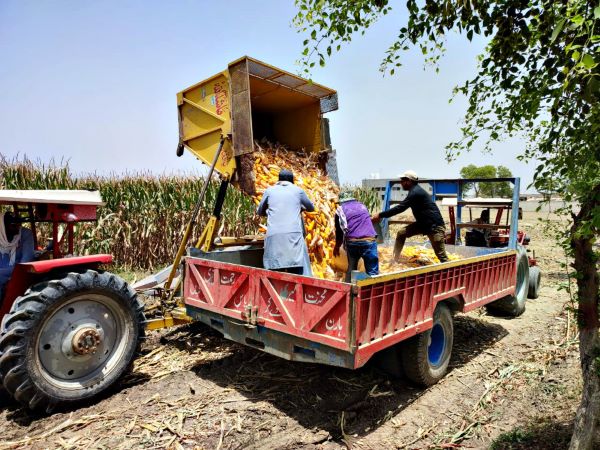The Kenyan government has been urged to develop policies that resolve long-standing for the East African country to be self-sufficient in staple food supplies, such as maize.
According to a research fellow at Tegemeo Institute, Egerton University, Timothy Njagi Njeru, at the top of Kenya’s challenges is food insecurity.
“In 2022, the country has experienced higher food prices than ever before. Among the commodities that have seen high price increases is maize. This staple food has doubled in price in a year,” he said.
He said the current food inflation was a result of a combination of factors, such as the Covid-19 pandemic affecting both production of food and inputs for production.
Kenya is also experiencing one of the worst droughts registered in the past four decades.
“The La Niña weather phenomenon has hit the central, eastern and northern regions of the country, leaving about 4.3 million Kenyans in need of food assistance as of August 2022.
“The Russian war in Ukraine affected supply not only of grains, but also of key inputs such as fertiliser. These shocks occurred simultaneously. But long-standing issues in Kenya must be resolved if the country is to be self-sufficient in staples, such as maize.”
To prevent future crises, Njeru suggested a number of solutions that the Kenyan government must implement with urgency.
These include reducing the cost of production, fixing policy incoherence, combating climate change and building farmers’ resilience, reducing post-harvest losses, investing in agricultural data systems, and addressing stagnation in productivity.
“In 2022, the cost of all inputs, including seed, fertiliser, agro-chemicals, hire of machinery and labour, increased. Simulations based on cost of production studies suggest that the cost of maize production will likely rise by an average of 60% for the 2022 main season,” said Njeru.
“The cost of production is projected to be upwards of KSh4 000 or about US$40 for a 90kg bag, with a two-kilogramme packet of flour retailing at an average of KSh220 (US$2.2).
“It is estimated that the annual per capita consumption of maize is 80kg. This translates to about 200 grams daily. The average household, with four members, would require about KSh600 per week (about US$6).”
Njeru added: “To maintain prices at affordable levels, farmers should aim to produce maize for less than KSh1,800 (US$18) per 90-kg bag.”
He also called for coherence in making policy decisions.
“Decisions based on politics lead to incoherent policies. For example, a fertiliser subsidy came too late for the maize planting season this year and its design was criticised.
Turning to climate change, Njeru said; “The government must invest in getting and sharing advance information about weather. This year, alerts about poor weather should have resulted in advisories for farmers about what to plant. Farmers also need a better understanding of crop insurance.”
He also called for better handling and storage of grain to reduce post-harvest losses, and investing in agricultural data systems as reliable and credible data will be useful for informing policies and interventions.
“It can alert the public sector to shocks such as low production. This was recommended in 2019 but the government is yet to implement most of the recommendations,” adding; “there is a need to support county governments to revive extension and advisory systems. Robust systems make it clearer what farmers are purchasing with subsidies and how productivity is affected.”
Njeru further advised the Kenyan government to take a leaf from Ethiopia’s example where the neighbouring country has increased cereal productivity over the past two decades.
“It (Ethiopia) achieved this primarily because it revamped its extension systems and combined them with an inputs subsidy programme which delivered seeds and fertilisers to farmers. The strategy was to teach farmers about new technologies and enable them to get the inputs required to use new knowledge.”









[…] Source […]
Comments are closed.